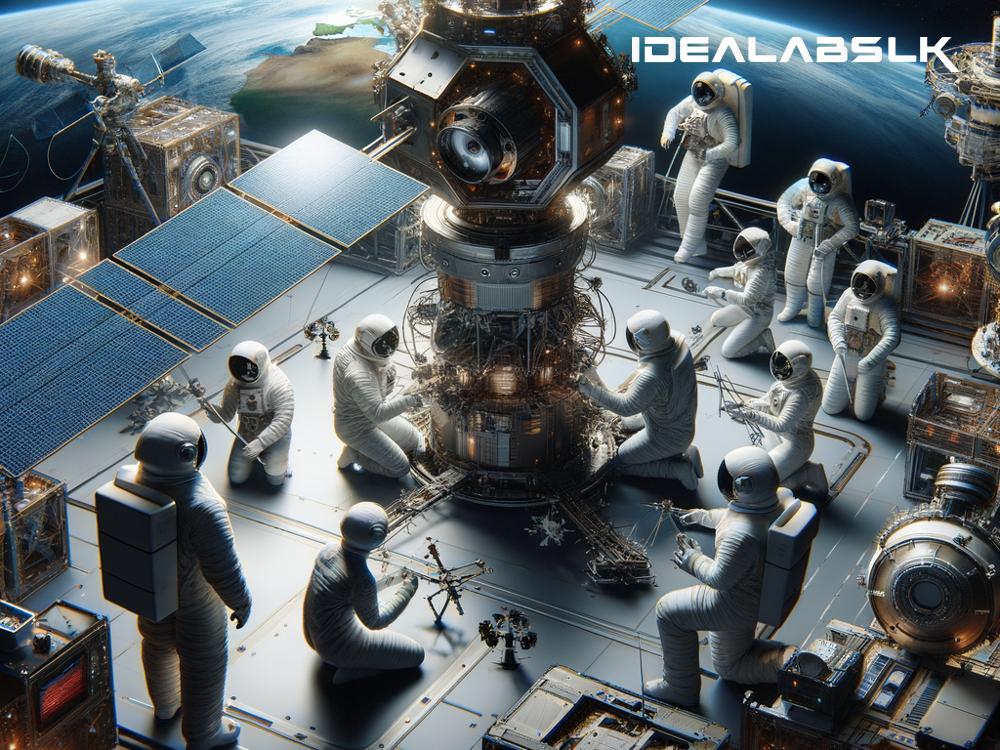How the Space Economy Is Set to Boom: Exploring the Future of Space-Based Manufacturing and Resources by 2025
Imagine a world where factories float in space, mining asteroids for precious metals, and satellites orbiting Earth are built right there in the cosmos. It sounds like something from a science fiction novel, right? Well, brace yourself, because by 2025, this could very well be our reality. The space economy is on the brink of a major boom, with space-based manufacturing and resources poised to open up a universe of possibilities (pun intended).
A New Frontier: The Space Economy
First off, let's talk about what the "space economy" actually means. In simple terms, it includes all the activities related to producing goods and services that involve space in some way. This could be satellite communications, space tourism, or even the manufacturing of products in space. And according to experts, this sector is expected to skyrocket (again, pun intended) in the coming years, turning into a multi-trillion-dollar industry.
So, why is everyone so excited about the space economy, you ask? Well, it's because space offers unique conditions that can be hugely beneficial for manufacturing and other sectors. For example, the microgravity (very weak gravity) in space allows us to create materials and products that are impossible to make on Earth. Plus, there’s a wealth of resources in space, from water on the moon to rare metals in asteroids that we’re only just beginning to think about accessing.
Space-Based Manufacturing: A Game-Changer
By 2025, we might see factories in space becoming a common thing. These factories could manufacture parts for satellites and spacecrafts, or even produce unique materials and pharmaceuticals that can only be made in microgravity. This shift could revolutionize how we build and design products for use both on Earth and in space.
There are already companies working on developing these technologies. For example, imagine a scenario where a company sets up a facility in space that uses the microgravity to mix materials in ways that simply aren't possible on Earth, creating new, super-efficient batteries or stronger metals. The implications for industries like electronics, construction, and transport are mind-blowing.
Mining the Heavens: Space Resources
The thought of mining asteroids might sound like something out of an episode of "The Expanse," but it's closer to reality than you might think. Asteroids are loaded with metals like platinum, gold, and nickel, as well as water which can be converted into rocket fuel. By tapping into these off-Earth resources, we could significantly reduce the cost and environmental impact of space exploration.
By 2025, we might see the first missions aimed at exploring and potentially mining asteroids. This won't just be about boosting our economy back on Earth with precious metals. It will also be about making long-term space exploration sustainable, as we’ll be able to use resources found in space rather than lifting every kilogram out of Earth's gravity well.
Satellite Revolution
Another exciting aspect of the booming space economy is the role of satellites. We're not just talking about enhancing our GPS or improving telecommunications; the future holds much more. Satellites could be assembled in orbit, reducing the need for them to withstand the harsh launch environment. This could make satellites lighter, more complex, and more functional than those we can launch from Earth.
Moreover, satellites could play a crucial role in space manufacturing and resource extraction, serving as platforms for processing materials or even as relay stations for energy beamed back to Earth from solar panels in space.
Looking Ahead: The Challenges and Opportunities
Of course, with great opportunity comes great challenges. Space is still a harsh and unexplored environment, and operations there will require innovation, regulations, and international cooperation like never before. Issues like space debris, territorial claims in space, and the environmental impact of space launches are all areas that need addressing as we move forward.
But the potential benefits are enormous. The space economy could not only drive technological advancements and economic growth but also help address some of Earth's most pressing issues, like energy sustainability and resource scarcity.
Conclusion
As we look towards 2025, it's clear that the space economy is set to boom. Space-based manufacturing and resources could very well be the next frontier in human innovation, offering endless possibilities for the future. While there are certainly hurdles to overcome, the journey into this final frontier promises to be one of the most exciting chapters in our history. So, get ready to witness a new era of space exploration and economic expansion that could literally take humanity to new heights.

